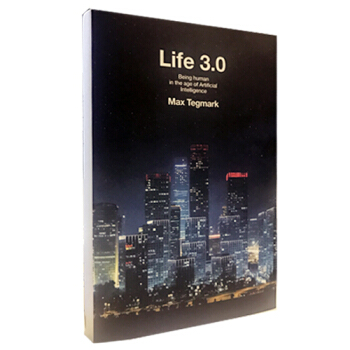![Bleak House 荒凉山庄 [平装]](https://pic.windowsfront.com/19017085/56aecf1fN303bfeaf.jpg)

具体描述
编辑推荐
Bleak House is such a natural for audio that it comes as no surprise to read in Peter Ackroyd's biography of Dickens that he himself read it aloud to Wilkie Collins and his own family. No matter how good he was as a readerAand he did go on to present public readings regularly after thisADickens could not have performed better than Robert Whitfield does here. With a motley cast of characters to challenge the skill of any narrator, his brilliant dramatizations range from a homeless street urchin to an arrogant barrister, from a canny old windbag to a high-minded heroine who deserves the happy ending Dickens affords her. Whitfield is also as persuasive as the indignant voice of the author himself, attacking both the injustice of the law and the cruel indifference of society. This may be one of the most Dickensian novels Dickens ever wrote.内容简介
Widely regarded as Dickens's masterpiece, Bleak House centers on the generations-long lawsuit Jarndyce and Jarndyce, through which "whole families have inherited legendary hatreds." Focusing on Esther Summerson, a ward of John Jarndyce, the novel traces Esther's romantic coming-of-age and, in classic Dickensian style, the gradual revelation of long-buried secrets, all set against the foggy backdrop of the Court of Chancery. Mixing romance, mystery, comedy, and satire, Bleak House limns the suffering caused by the intricate inefficiency of the law.作者简介
Charles Dickens was born in 1812 near Portsmouth where his father was a clerk in the navy pay office. The family moved to London in 1823, but their fortunes were severely impaired. Dickens was sent to work in a blacking-warehouse when his father was imprisoned for debt. Both experiences deeply affected the future novelist. In 1833 he began contributing stories to newspapers and magazines, and in 1836 started the serial publication of Pickwick Papers. Thereafter, Dickens published his major novels over the course of the next twenty years, from Nicholas Nickleby to Little Dorrit. He also edited the journals Household Words and All the Year Round. Dickens died in June 1870.查尔斯·狄更斯(Charles Dickens,1812~1870),1812年生于英国的朴次茅斯。父亲过着没有节制的生活,负债累累。年幼的狄更斯被迫被送进一家皮鞋油店当学徒,饱尝了艰辛。狄更斯16岁时,父亲因债务被关进监狱。从此,他们的生活更为悲惨。工业革命一方面带来了19世纪前期英国大都市的繁荣,另一方面又带来了庶民社会的极端贫困和对童工的残酷剥削。尖锐的社会矛盾和不公正的社会制度使狄更斯决心改变自己的生活。15岁时,狄更斯在一家律师事务所当抄写员并学习速记,此后,又在报社任新闻记者。在《记事晨报》任记者时,狄更斯开始发表一些具有讽刺和幽默内容的短剧,主要反映伦敦的生活,逐渐有了名气。他了解城市底层人民的生活和风土人情,这些都体现在他热情洋溢的笔端。此后,他在不同的杂志社任编辑、主编和发行人,其间发表了几十部长篇和短篇小说,主要作品有《雾都孤儿》、《圣诞颂歌》、《大卫·科波菲尔》和《远大前程》等。
狄更斯的作品大多取材于与自己的亲身经历或所见所闻相关联的事件。他在书中揭露了济贫院骇人听闻的生活制度,揭开了英国社会底层的可怕秘密,淋漓尽致地描写了社会的黑暗和罪恶。本书起笔便描写了主人公奥利弗生下来便成为孤儿,以及在济贫院度过的悲惨生活。后来,他被迫到殡仪馆做学徒,又因不堪忍受虐待而离家出走。孤身一人来到伦敦后,又落入了窃贼的手中。狄更斯在其作品中大量描写了黑暗的社会现实,对平民阶层寄予了深切的向情,并无情地批判了当时的社会制度。他在小说描写的现实性和人物的个性化方面成绩是突出的。他成为继莎士比亚之后,塑造作品人物数量最多的一个作家。
精彩书摘
Chapter OneIn Chancery
London. Michaelmas Term lately over, and the Lord Chancellor sitting in Lincoln's Inn Hall. Implacable November weather. As much mud in the streets, as if the waters had but newly retired from the face of the earth, and it would not be wonderful to meet a Megalosaurus,forty feet long or so, waddling like an elephantine lizard up Holborn-hill. Smoke lowering down from chimney-pots, making a soft black drizzle, with flakes of soot in it as big as full-grown snow-flakes-gone into mourning, one might imagine, for the death of the sun. Dogs, undistinguishable in mire. Horses, scarcely better; splashed to their very blinkers. Foot passengers, jostling one another's umbrellas, in a general infection of ill-temper, and losing their foot-hold at street corners, where tens of thousands of other foot passengers have been slipping and sliding since the day broke (if the day ever broke), adding new deposits to the crust upon crust of mud, sticking at those points tenaciously to the pavement, and accumulating at compound interest.
Fog everywhere. Fog up the river, where it flows among green aits and meadows; fog down the river, where it rolls defiled among the tiers of shipping, and the waterside pollutions of a great (and dirty) city. Fog on the Essex marshes, fog on the Kentish heights. Fog creeping into the cabooses of collier-brigs; fog lying out on the yards, and hovering in the rigging of great ships; fog drooping on the gunwales
of barges and small boats. Fog in the eyes and throats of ancient Greenwich pensioners, wheezing by the firesides of their wards; fog in the stem and bowl of the afternoon pipe of the wrathful skipper, down in his close cabin; fog cruelly pinching the toes and fingers of his shivering little 'prentice boy on deck. Chance people on the bridges peeping over the parapets into a nether sky of fog, with fog all round them, as if they were up in a balloon, and hanging in the misty clouds.
Gas looming through the fog in divers places in the streets, much as the sun may, from the spongey fields, be seen to loom by husbandman and ploughboy. Most of the shops lighted two hours before their time-as the gas seems to know, for it has a haggard and unwilling look.
The raw afternoon is rawest, and the dense fog is densest, and the muddy streets are muddiest, near that leaden-headed old obstruction, appropriate ornament for the threshold of a leaden-headed old corporation: Temple Bar. And hard by Temple Bar, in Lincoln's Inn Hall, at the very heart of the fog, sits the Lord High Chancellor in his High Court of Chancery.
Never can there come fog too thick, never can there come mud and mire too deep, to assort with the groping and floundering condition which this High Court of Chancery, most pestilent of hoary sinners, holds, this day, in the sight of heaven and earth.
On such an afternoon, if ever, the Lord High Chancellor ought to be sitting here-as here he is-with a foggy glory round his head, softly fenced in with crimson cloth and curtains, addressed by a large advocate with great whiskers, a little voice, and an interminable brief, and outwardly directing his contemplation to the lantern in the roof, where he can see nothing but fog. On such an afternoon, some score of members of the High Court of Chancery bar ought to be-as here they are-mistily engaged in one of the ten thousand stages of an endless cause, tripping one another up on slippery precedents, groping knee-deep in technicalities, running their goat-hair and horse-hair warded heads against walls of words, and making a pretence of equity with serious faces, as players might. On such an afternoon, the various solicitors in the cause, some two or three of whom have inherited it from their fathers, who made a fortune by it, ought to be-as are they not?-ranged in a line, in a long matted well (but you might look in vain for Truth at the bottom of it), between the registrar's red table and the silk gowns, with bills, cross-bills, answers, rejoinders, injunctions, affidavits, issues, references to masters, masters' reports, mountains of costly nonsense, piled before them. Well may the court be dim, with wasting candles here and there; well may the fog hang heavy in it, as if it would never get out; well may the stained glass windows lose their color, and admit no light of day into the place; well may the uninitiated from the streets, who peep in through the glass panes in the door, be deterred from entrance by its owlish aspect, and by the drawl languidly echoing to the roof from the padded dais where the Lord High Chancellor looks into the lantern that has no light in it, and where the attendant wigs are all stuck in a fog-bank! This is the Court of Chancery; which has its decaying houses and its blighted lands in every shire; which has its worn-out lunatic in every madhouse, and its dead in every churchyard; which has its ruined suitor, with his slipshod heels and threadbare dress, borrowing and begging through the round of every man's acquaintance; which gives to monied might the means abundantly of wearying out the right; which so exhausts finances, patience, courage, hope; so overthrows the brain and breaks the heart; that there is not an honorable man among its practitioners who would not give-who does not often give-the warning, "Suffer any wrong that can be done you, rather than come here!"
Who happen to be in the Lord Chancellor's court this murky afternoon besides the Lord Chancellor, the counsel in the cause, two or three counsel who are never in any cause, and the well of solicitors before mentioned? There is the registrar below the Judge, in wig and gown; and there are two or three maces, or petty-bags, or privy-purses, or whatever they may be, in legal court suits. These are all yawning; for no crumb of amusement ever falls from Jarndyce and Jarndyce (the cause in hand), which was squeezed dry years upon years ago. The short-hand writers, the reporters of the court, and the reporters of the newspapers, invariably decamp with the rest of the regulars when Jarndyce and Jarndyce comes on. Their places are a blank. Standing on a seat at the side of the hall, the better to peer into the curtained sanctuary, is a little mad old woman in a squeezed bonnet, who is always in court, from its sitting to its rising, and always expecting some incomprehensible judgment to be given in her favor. Some say she really is, or was, a party to a suit; but no one knows for certain, because no one cares. She carries some small litter in a reti-cule which she calls her documents; principally consisting of paper matches and dry lavender. A sallow prisoner has come up, in custody, for the half-dozenth time, to make a personal application "to purge himself of his contempt;" which, being a solitary surviving executor who has fallen into a state of conglomeration about accounts of which it is not pretended that he had ever any knowledge, he is not at all likely ever to do. In the meantime his prospects in life are ended. Another ruined suitor, who periodically appears from Shropshire, and breaks out into efforts to address the Chancellor at the close of the day's business, and who can by no means be made to understand that the Chancellor is legally ignorant of his existence after making it desolate for a quarter of a century, plants himself in a good place and keeps an eye on the Judge, ready to call out "My lord!" in a voice of sonorous complaint, on the instant of his rising. A few lawyers' clerks and others who know this suitor by sight, linger, on the chance of his furnishing some fun, and enlivening the dismal weather a little.
Jarndyce and Jarndyce drones on. This scarecrow of a suit has, in course of time, become so complicated, that no man alive knows what it means. The parties to it understand it least; but it has been observed that no two Chancery lawyers can talk about it for five minutes, without coming to a total disagreement as to all the premises. Innumerable children have been born into the cause; innumerable young people have married into it; innumerable old people have died out of it. Scores of persons have deliriously found themselves made parties in Jarndyce and Jarndyce, without knowing how or why; whole families have inherited legendary hatreds with the suit. The little plaintiff or defendant, who was promised a new rocking-horse when Jarndyce and Jarndyce should be settled, has grown up, possessed himself of a real horse, and trotted away into the other world. Fair wards of court have faded into mothers and grandmothers; a long procession of Chancellors has come in and gone out; the legion of bills in the suit have been transformed into mere bills of mortality; there are not three Jarndyces left upon the earth perhaps, since old Tom Jarndyce in despair blew his brains out at a coffee-house in Chancery-lane; but Jarndyce and Jarndyce still drags its dreary length before the Court, perennially hopeless.
Jarndyce and Jarndyce has passed into a joke. That is the only good that has ever come of it. It has been death to many, but it is a joke in the profession. Every master in Chancery has had a reference out of it. Every Chancellor was "in it," for somebody or other, when he was counsel at the bar. Good things have been said about it by blue-nosed, bulbous-shoed old benchers, in select port-wine committee after dinner in hall. Articled clerks have been in the habit of fleshing their legal wit upon it. The last Lord Chancellor handled it neatly, when, correcting Mr. Blowers the eminent silk gown who said that such a thing might happen when the sky rained potatoes, he observed, "or when we get through Jarndyce and Jarndyce, Mr. Blowers;"-a pleasantry that particularly tickled the maces, bags, and purses.
How many people out of the suit, Jarndyce and Jarndyce has stretched forth its unwholesome hand to spoil and corrupt, would be a very wide question. From the master, upon whose impaling files reams of dusty warrants in Jarndyce and Jarndyce have grimly writhed into many shapes; down to the copying clerk in the Six Clerks'...
用户评价
我对于那些能够构建出庞大而又精妙的社会图景的作品,总是抱有极大的热情。这类书籍就像是一面镜子,映照出不同阶层、不同个体的生活状态与心灵轨迹,也常常能揭示出时代洪流下个体命运的无奈与抗争。我尤其喜欢那些不回避现实残酷,却又能从中提炼出人性的光辉与希望的作品。我知道《荒凉山庄》是这样一部作品,它能够深入到社会肌理之中,去展现那些被掩盖的角落,去触及那些被忽视的灵魂。我期待作者能够用其独特的笔触,将这样一个复杂的世界生动地展现在我眼前,让我能够感受到不同人物的挣扎与求索,理解他们所处的环境如何塑造了他们的命运。我希望这本书能够让我对人性有更深的理解,也对我们所处的社会有更广阔的认知。
评分我一直对那种能够展现社会百态、人物关系错综复杂的故事情有独钟,而《荒凉山庄》给我的感觉就是这样一本值得细细品味的巨著。我欣赏那种能够驾驭宏大叙事,同时又能捕捉到个体情感细微之处的作家。从书名本身就能感受到一种扑面而来的宿命感和压抑感,这让我对故事的走向充满了好奇,也预感到其中会有许多令人深思的环节。我喜欢在阅读过程中不断揣摩人物的动机,理解他们行为背后的驱动力,并试图在他们身上找到自己曾经的影子,或者看到人性的各种侧面。这种抽丝剥茧、层层深入的阅读方式,能让我对作品有更深刻的理解。我不会急于求成,而是享受这种慢慢渗透、逐渐沉浸的过程,如同在迷雾中寻找方向,每解开一个谜团,都伴随着豁然开朗的喜悦。我希望这本书能够带给我这样的体验,让我能够在这个虚构的世界里,获得超越现实的感悟。
评分这本书的装帧设计我非常喜欢,平装本握在手里触感温润,封面上的插画意境深远,恰好烘托了书名所暗示的那种厚重感和一丝挥之不去的阴郁。我通常会花些时间来欣赏一本心仪的图书的实体,这是一种仪式感,也是我对即将展开的阅读旅程的期待。纸张的质感也很不错,翻页的时候没有廉价的沙沙声,而是有一种细腻的摩擦感,这对于长时间沉浸在阅读中的我来说,是至关重要的。我偏爱纸质书,电子阅读虽然便捷,但总觉得少了些温度,少了那种指尖拂过书页的实在感。这本书的排版设计也相当用心,字体大小适中,行间距也恰到好处,即使在光线不佳的环境下阅读,也不会感到吃力。这样的细节,虽然不直接关系到故事本身,却极大地提升了阅读的愉悦度,让我更能专注于文字所营造的世界。我常常觉得,一本好书,从内到外都应该散发着它的独特魅力,而这本《荒凉山庄》无疑做到了这一点。从我拿到它的时候,就预感到这将是一次不寻常的阅读体验。
评分这是一本让我产生了强烈代入感的书,我总能在其中某些场景或人物身上找到共鸣。它似乎不仅仅是在讲一个故事,更像是在诉说一种普遍存在的困境,一种深深烙印在人心底的情感。我喜欢那种作者能够将自己情感注入文字,使得读者也能感受到那种力量的作品。当我翻开这本书,我期待的不仅仅是情节的起伏,更是情感的碰撞,是灵魂的触动。我希望这本书能够像一位老友,与我进行一次深入的交谈,探讨那些关于人生、关于情感、关于存在的永恒问题。我不会去刻意分析它的结构或者语言技巧,而是让自己的心随着文字的流动而起伏,去感受其中的喜怒哀乐,去体验那些不被言语所完全表达的深刻情感。
评分我一直相信,伟大的文学作品能够超越时代,触及人类共通的情感和困境,而《荒凉山庄》似乎就是这样一本承载着厚重历史感和深刻思想的作品。我倾向于那些能够引领我进行深度思考,甚至是在阅读之后依然久久回味的书籍。我喜欢那种作者在不动声色间,就能揭示出人性的复杂与社会的弊病,让读者在不知不觉中被引导去审视和反思。我期待这本书能够给我带来一次思想的洗礼,让我能够看到那些被时间所掩埋的真相,也能够从中汲取力量,去更好地理解生活。我不会急于知道结局,而是享受在故事中不断探索、不断领悟的过程,仿佛在参与一场跨越时空的对话。
评分京东图书大促,一年一度的购书机会,不容错过。好!
评分原版书,比世图的英文书好多了,字体好 纸质好。唯一缺点就是字号有点儿小。
评分好书一本,值得购买,值得一读。
评分挺厚的一本书,字体也比较小,内容挺多的,感觉书的封面和图片中的稍微有点不一样,不过页数什么的没问题,之前看过BBC的翻拍感觉很不错,特地买来小说读一下
评分比想象的厚?像一本字典
评分[cp]我在京东发现了一个不错的商品晒单,快来看看吧,说不定你也需要哦~ 绝对值得购买,纸质不晃眼,便于携带。推荐大家购买京东图书。@京东
评分全国高等院校英语专业系列教材,英语专业系列教材
评分京东搞活动的时候,买的超级实惠,买了几千块的书,物流超快,赞一个。
评分不错
相关图书
本站所有内容均为互联网搜索引擎提供的公开搜索信息,本站不存储任何数据与内容,任何内容与数据均与本站无关,如有需要请联系相关搜索引擎包括但不限于百度,google,bing,sogou 等
© 2026 book.coffeedeals.club All Rights Reserved. 静流书站 版权所有

![Death on the Nile尼罗河上的惨案 英文原版 [平装] pdf epub mobi 电子书 下载](https://pic.windowsfront.com/19027226/rBEhWlJ6_cIIAAAAAAGgEjA1inIAAFGjwBNJtcAAaAq785.jpg)
![Count with the Very Hungry Caterpillar Sticker Book和饥饿的毛毛虫一起数数 英文原版 [平装] [3-8岁] pdf epub mobi 电子书 下载](https://pic.windowsfront.com/19028557/0580ecfd-ba88-416f-8f0c-f052460d847e.jpg)
![Andrew Lost with the Dinosaurs 英文原版 [平装] [6-9岁] pdf epub mobi 电子书 下载](https://pic.windowsfront.com/19032153/a6b99f7b-fdfa-4012-b36a-cd80c12c835b.jpg)
![The Cat in the Hat 英文原版 [精装] [3岁及以上] pdf epub mobi 电子书 下载](https://pic.windowsfront.com/19035495/7edf42fa-2192-4208-a9f1-eef3d6a6a48f.jpg)
![The Reader (Random House Movie Tie-In Books)朗读者 英文原版 [平装] pdf epub mobi 电子书 下载](https://pic.windowsfront.com/19045228/rBEhWFKhykgIAAAAAAyM2hSonzAAAGcfACguXYADIzy809.jpg)
![Pinkalicious: Fairy House (I Can Read, Level 1) [平装] [4-8岁] pdf epub mobi 电子书 下载](https://pic.windowsfront.com/19282571/550bf0caNe0b0ca86.jpg)
![Cosmos 英文原版 [平装] pdf epub mobi 电子书 下载](https://pic.windowsfront.com/19523894/54696f57N08de095e.jpg)
![Civil War Movie Edition 美国队长3英雄内战电影版 英文原版 [平装] pdf epub mobi 电子书 下载](https://pic.windowsfront.com/19631613/570e5c79N96a0312e.jpg)
![Marvel's Captain America: Civil War Prelude 美国队长3 英雄内战前奏曲 英文原版 [平装] pdf epub mobi 电子书 下载](https://pic.windowsfront.com/19633536/570e5c81Nb7665b2f.jpg)






![No Fighting, No Biting! (I Can Read, Level 2)不许打架,不许咬人 [平装] [4-8岁] pdf epub mobi 电子书 下载](https://pic.windowsfront.com/19004902/550be658N2524ae8b.jpg)
![Do You Want to Be My Friend? Board Book你想成为我的朋友吗?(纸板书) [平装] [2-8岁] pdf epub mobi 电子书 下载](https://pic.windowsfront.com/19009030/550be682N15e24865.jpg)
![Motorcycles! (Step into Reading, Step 3)[进阶阅读3:超酷摩托车!] [平装] [5岁及以上] pdf epub mobi 电子书 下载](https://pic.windowsfront.com/19016238/d66afcbf-2144-463e-ac80-1659b921655b.jpg)
![National Geographic Readers: Lizards美国《国家地理》杂志-儿童科普分级阅读,第2级:蜥蜴 英文原版 [平装] [5岁及以上] pdf epub mobi 电子书 下载](https://pic.windowsfront.com/19037826/55ac8639N329bda81.jpg)
![Beach Babies Wear Shades [平装] pdf epub mobi 电子书 下载](https://pic.windowsfront.com/19037944/873c4f48-29bd-483d-b356-aa63fa44d782.jpg)